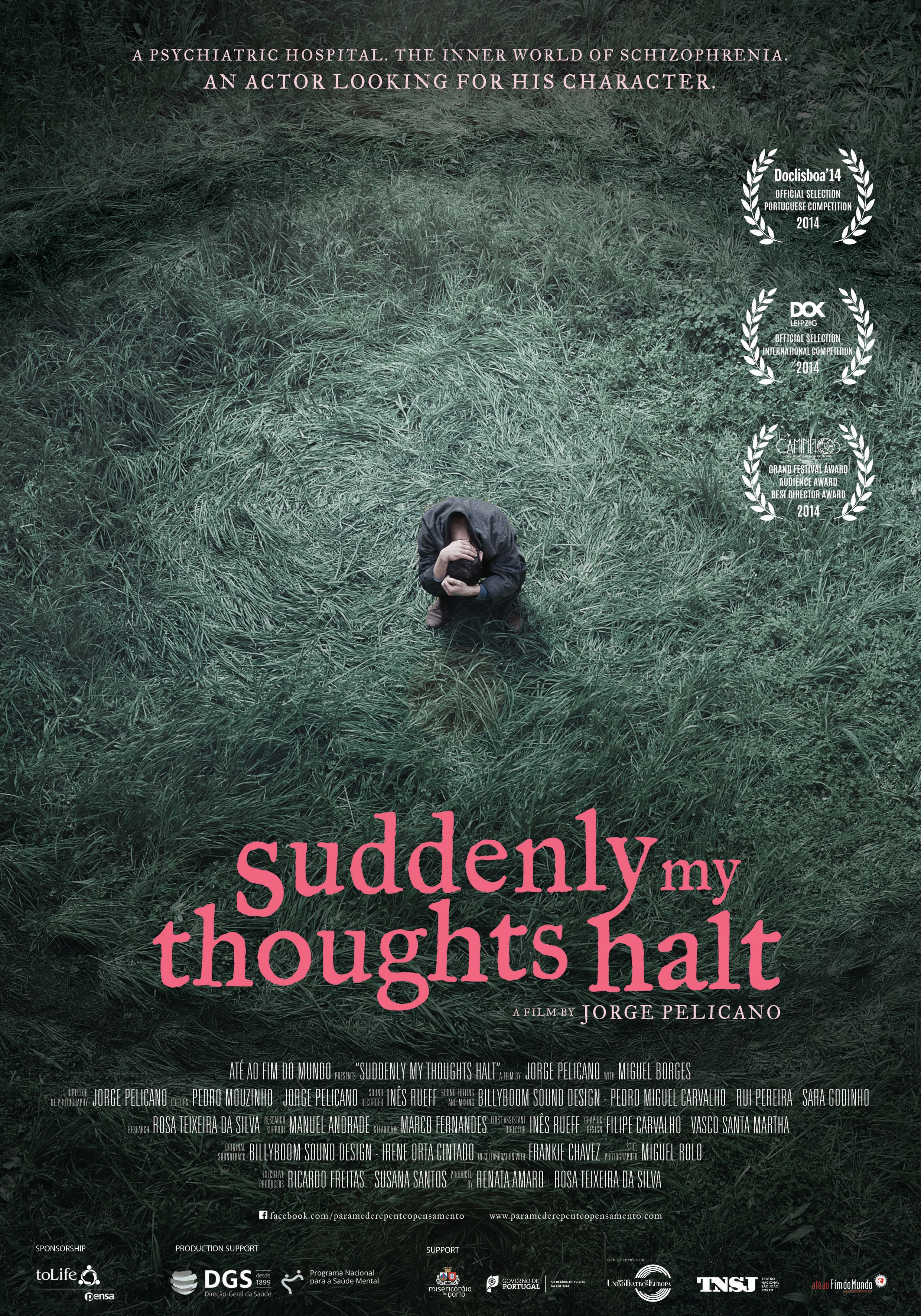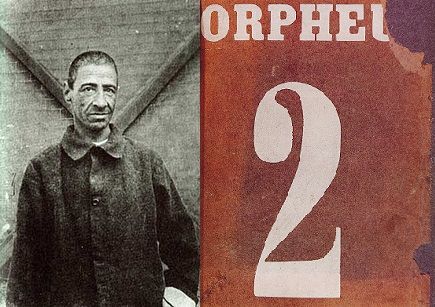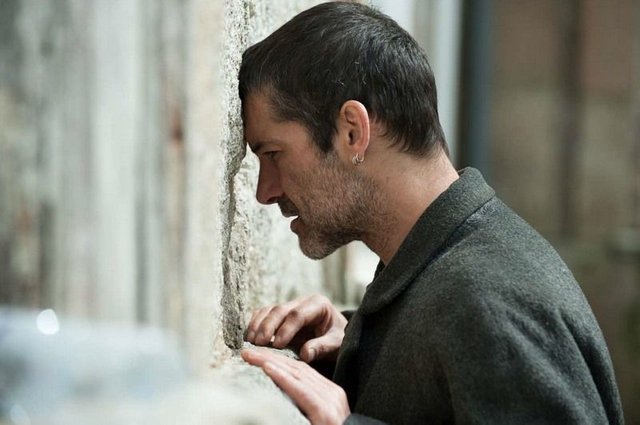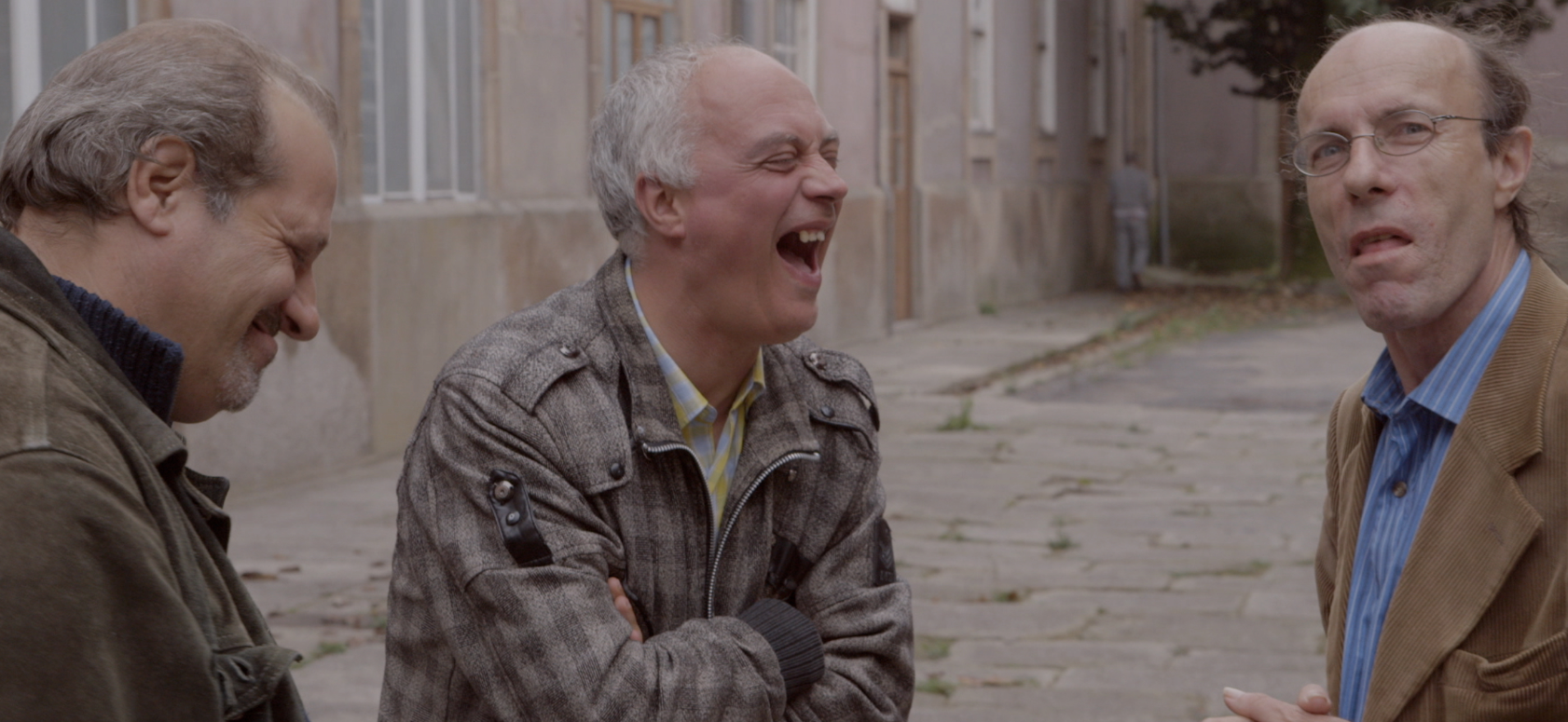«Suddenly my thoughts halt» - A human look at mental illness

A few weeks ago I watched a Portuguese documentary movie titled "Pára-me de repente o pensamento", translated to English as "Suddenly my thoughts halt". Brilliantly directed by Jorge Pelicano, the movie portrays an often publicly neglected and harsh reality, that of the lives of institutionalized mentally ill patients. The general public is sometimes quick to judge psychiatric patients and disregard them as legitimate human beings, contributing to the longstanding social stigma that surrounds these people.
The action takes place almost exclusively within the facilities of the Conde de Ferreira Hospital, in the city of Porto, which was the first institution to have been built in Portugal for the specific purpose of harboring and treating mentally ill patients, with its inauguration dating back to 1883. Filming has taken place throughout its various rooms and outskirts, providing a genuine set and context for the exercise it proposes to do: an artistic reflection on the human condition of people with mental illnesses.
The name of the documentary is taken from the first verse of a sonnet by Ângelo de Lima, a former resident of another mental institution, the Rilhafoles Hospital, in Lisbon. He was diagnosed with paranoid schizophrenia and institutionalized in 1901. Until his death, in 1923, he lived in the hospital where he wrote, drew and painted. Some of his poetry was defiantly published in 1915 in the second issue of the very influential booklet Orpheu, edited by Fernando Pessoa and Mário de Sá-Carneiro. Although a third issue was never published due to budget difficulties, the anthologies present in the two issues of Orpheu completely pioneered the modernist literary movement in Portugal.

The movie follows the unscripted lives and conversations among patients of the Conde de Ferreira Hospital and its staff. The only outsider is actor Miguel Borges, who comes to the institution by invitation in order to collaborate in a play which is being rehearsed by the hospital's residents to be presented during the celebrations of the institution's birthday. Miguel, who will take the role of Ângelo de Lima in the play, stays at the hospital during the several days of rehearsal, even sharing a room with a resident. In an absolutely non-judgemental and essentially observing attitude, Miguel embraces a deep search for an understanding of the state of mind of Ângelo de Lima by embracing this reality and really connecting with these misunderstood and often forsaken people. Miguel's presence offers the watcher a unique and interesting perspective, blurring the boundaries between sanity and insanity.

"Pára-me de repente o pensamento" is a thought provoking essay about the people behind the conditions. Its beautiful imagery captures not only the faces and actions of these people, but also their expressions of fear and confusion and affection and disappointment. Ultimately, it humanizes our perception of mentally ill patients, it dissolves misconceptions, it bridges the communication gap between the common person and the mentally afflicted by making use of languages beyond verbal. Like a poem, it can be read between the lines.

If you get the chance, I totally recommend you to watch this movie. Its unusual style and profound message should have a wider audience. I leave you some useful links to its official page (in Portuguese), its IMDB page, and its official trailer.
I recommend reading RAW Food and the Psych Ward and Ready Set Go! Step out. I think it will speak to you